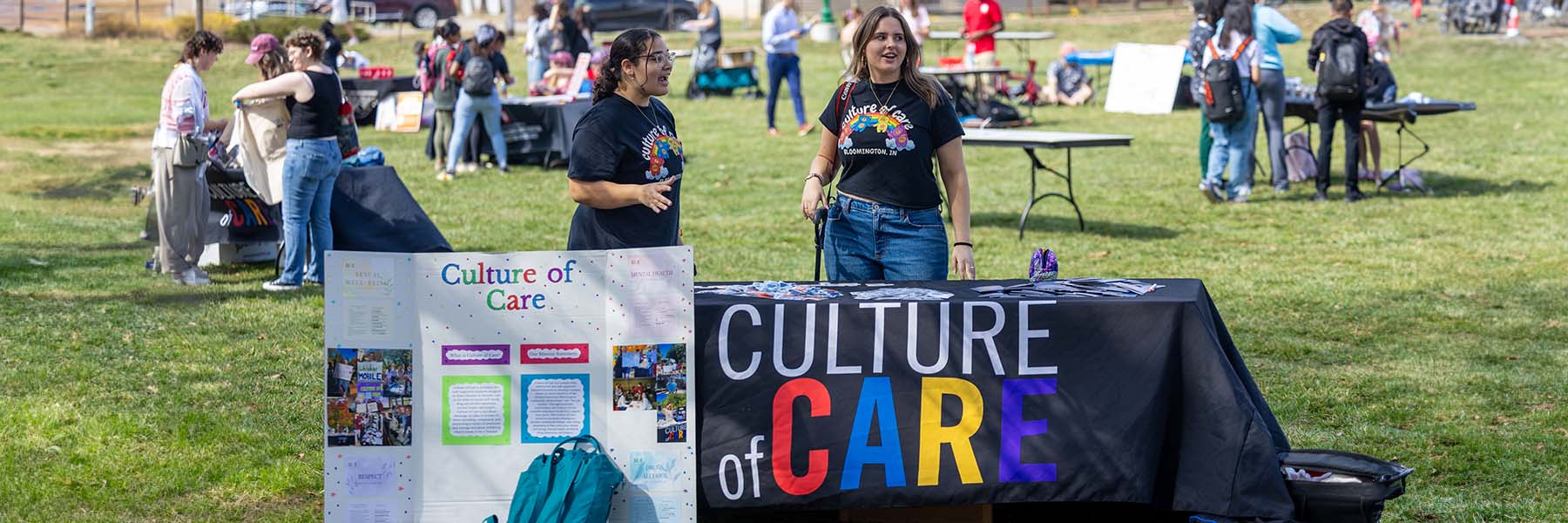Having the Courage to Care means having the courage to take action. The action can be big like stepping in to help a friend get home safely when they've had too much to drink, or it can be small like holding the door for a fellow Hoosier.
Why?
College is exciting but also challenging—especially when it comes to mental health, sexual well-being, drugs, alcohol, and respect.
Too often, people assume that "someone else will step in." But research shows that’s rarely the case. The bystander effect leads most people to do nothing, even when they know they should act.
In fact, 66% of Hoosiers believe that if someone had intervened, a negative outcome could have been avoided.
Ignoring a problem won’t make it go away. Looking the other way could have serious—sometimes even deadly—consequences.
Challenge the bystander effect
The bystander effect is a “social psychological phenomenon that refers to cases where individuals do not offer any means of help in an emergency situation to the victim when other people are present.”
Take action and band together to raise awareness, educate one another, and challenge the bystander effect. We aim to create a culture where Hoosiers step up and where someone, if not everyone, is there to help.
- You are at a party and you notice a fellow partier has had too much to drink. Don’t be a bystander and assume someone will take care of them. Be a Hoosier. Take action.
- You are in a hurry, late for class, and moving fast through the Arboretum when you see another student fall off a bike. Don’t be a bystander and assume someone will help them. Have the Courage to Care. Take action.


